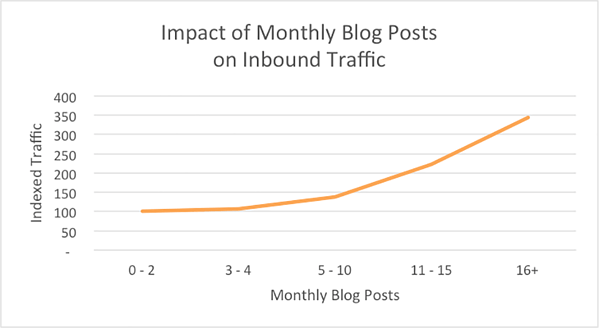Search Engine Optimization or formally known as SEO is the process to improve the quality of the webpages as well as increasing the organic web traffic and giving your brand exposure via organic search results. This means the practice of optimizing web pages and easily discovering your content upon searching for relevant keywords on your website. SEO has been proven to be the only online marketing method that offers benefits for the long term.
People who optimize the website so that it ranks at the top of various search engines to divert more web traffic to your website are Search Engine Optimizers.
One of the most important aspects of your e-commerce business is your visibility on Google and other search engines. Around 80% of customers who decide to make purchases online make sure you have positive visibility before moving forward with their purchase.
If you are looking to boost your e-commerce business, you must go through these effective SEO tips:
Highlights of Contents
7 Effective Steps to Improve eCommerce SEO in 2021
1. Keyword Research
Keyword research is the practice of finding and analyzing search terms that are entered by internet users into search engines for either SEO or marketing reasons.
This is where you can use the research keyword:
- In the Page Title – Your page title is the starting point where Google decides that your site is relevant or not with the search query entered by users.
- In the Meta Description – Your main keywords should be in the first 160 characters of your published content giving a brief idea about your content that is below the clickable link.
- In the Subheadings – Your visitors should have an idea about your content before they click on the link.
- In the overall Content – Cover the main content in the first few sentences or the first paragraph. After this, make the maximum use of that keyword and the variations it provides.
- In the URLs – The address of your web page will give Google a hint about the content on your web page.
When you research keywords for their popularity or search volume, you can get an idea about the interest and needs of people using the internet, which also includes your targeted audience.
Further, you can utilize these topics easily to decide which keywords to use for creating relevant content for a top ranking on search engines.
Here are some SEO tools that are recommended by experts for finding the right keywords:
- SEMRush
- Google Keyword Planner
- Ahrefs
- Ubersuggest
2. Update Your Web Structure
Your e-commerce store is specifically influenced by two parts of web structure:
- Breadcrumb Navigation – For a positive effect on site mapping and the alignment of your site structure, use a displayed form of site navigation to let your readers know where they are without having to check the URL.
- URLs – If you want your URL to be readable, you need to keep it clean. It will make it easier for both Google and visitors to reach your web page. A good example of a clean URL is www.cypherox.com.
3. Start Creating More Content
Creating content is important even if your website is an e-commerce store. A lot of studies show that a great way to increase visibility and generating web traffic is optimized publishing content.

(Source: Hubspot)
4. Optimize Your Category Pages
Besides the homepage of your website, a factor that can bring in most of your web traffic is the category page on e-commerce sites. This is because most users search for generic categories. To be specific, a visitor tends to search for a keyword rather than searching for a particular product.
You can abide by these few tips for your category search page:
- You could use the keyword research on category titles
- You could optimize your meta description with innovative and content that is appealing to the visitors
- You could add an H1 tag to each of your category pages
- You could write a short description of your category page below the H1 tag
- You could include internal links in the description and assimilate pictures of your products through the entire category page
5. Focus More on Mobile SEO
Research shows there were 5.15 billion mobile phone users in the year 2020. With these many mobile users in one single year, it was time Google use made web performance on smart devices a crucial metric while determining the ranking of a website’s search result.
When you focus on mobile optimization, you make sure that the users that are active from their smart devices have a good time on your website. User-friendly mobile optimization will bring a boost in SERPs for your e-commerce store.
When you are an e-commerce vendor, you should pay attention to these aspects below:
- Mobile interface of your e-commerce store
- Loading time and the speed of the page on smart devices
- The uncomplicated checkout process on mobile phones
6. Maximize Your Website Speed
Google has marked site speed as one of the criteria to get a high rank by measuring the loading time of a page. Even if this did not matter much, your website speed decides how the user experience will be. Any page with a longer loading time will have a higher bounce rate and minimal time on the page. Below are two tools that can help you check your website speed and figure out what could be the problem:
- Google PageSpeed Insights
- Pingdom
7. Eliminate the Broken Links
Anytime a visitor follows a link to your website, they come with an expectation to see a certain type of content on your page; broken links ruin this experience for your visitors. Not only this, but broken links can also affect your SEO and your website’s relationship with search engines.
What you can do to avoid broken links?
- Rather than deleting your content, try updating it
- Redirect your visitors to a fresh page with the help of 301 redirects
These are the most effective SEO tips you can undertake to boost your e-commerce business. Managing e-commerce without any difficulties will require the assistance of Search Engine Optimizers. So, my advice will be to hire the best ones for your e-commerce business.
Also Read: Top 10 Benefits of SEO Implementation in Your Business

